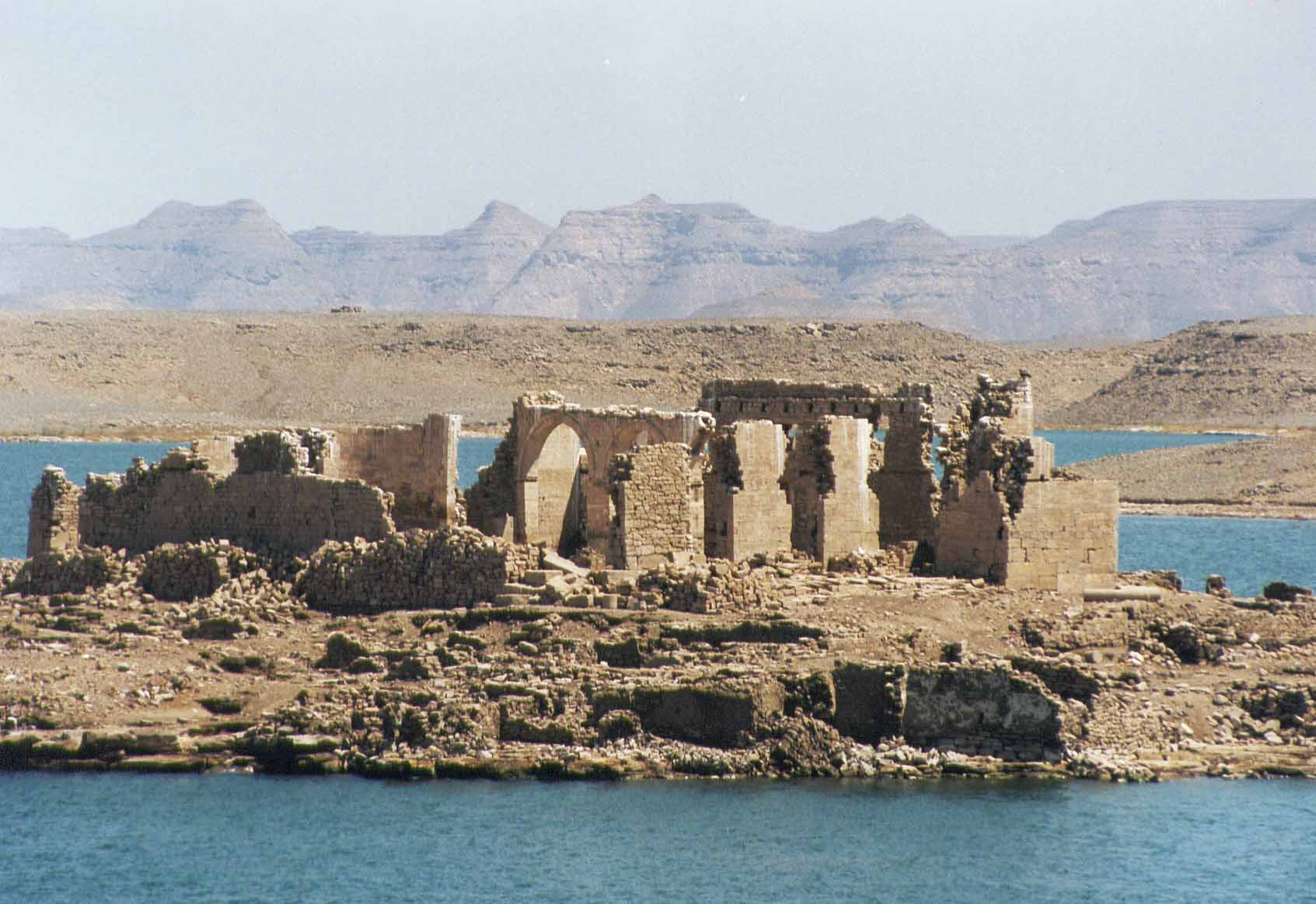Kasr Ibrim Temple Excavations & Cathedral
Qasr Ibrim is an archaeological site located on a hilltop overlooking the Nile River in Egypt. It is a remarkable fortress that has stood the test of time, preserving the history and heritage of ancient civilizations. Let's delve into the fascinating story of Qasr Ibrim and explore its historical significance, architectural marvels, and cultural treasures.
Qasr Ibrim Meaning
"Qasr Ibrim" translates to "Ibrim Fortress" or "Fort of Ibrim." The term "qasr" means "fortress" in Arabic.
Ancient Origins
Qasr Ibrim has a rich history dating back over 3,000 years. It served as a strategic location for several civilizations, including the ancient Egyptians, Nubians, Romans, Byzantines, and Arabs. The earliest evidence of human settlement in the area dates back to the Middle Kingdom of Egypt, around the 20th century BCE.
The Nubian Connection
During the New Kingdom of Egypt, Qasr Ibrim became a vital frontier post guarding the southern borders of the Egyptian empire. However, with the decline of Egyptian power, the region came under the control of the Nubian kingdom of Kush. The Nubians recognized the strategic importance of Qasr Ibrim and expanded and fortified the site.
An Architectural Marvel
One of the remarkable features of Qasr Ibrim is its unique architecture. The fortress was built using locally available sandstone, creating a seamless blend with the natural landscape. The structures were designed to withstand the harsh desert climate and provide protection for its inhabitants. The remains of the citadel reveal a complex of buildings, including a palace, a church, and residential quarters.
Preserving the Past
Qasr Ibrim has played a vital role in archaeological research and preservation efforts. Due to its remote location, the site remained relatively undisturbed throughout history, allowing archaeologists to unearth invaluable artifacts and gain insights into ancient civilizations. Excavations have revealed a wealth of pottery, jewelry, sculptures, and inscriptions that shed light on the daily life, trade, and cultural practices of the past.
Cultural Heritage and Tourism
While Qasr Ibrim is not open to the public due to its remote and inaccessible location, its significance in preserving cultural heritage cannot be understated. The archaeological findings from the site contribute to our understanding of the diverse cultures that thrived in the region. Scholars, researchers, and history enthusiasts continue to study the artifacts and architectural remains to unravel the mysteries of ancient civilizations.
Qasr Ibrim Today
Today, Qasr Ibrim stands as a silent sentinel, a testament to the resilience and endurance of the human spirit. Though the citadel is not open for public exploration, it serves as a reminder of Egypt's rich and complex history. Its remote location adds to its mystique, and the breathtaking views of the surrounding landscape make it a sight to behold for those fortunate enough to glimpse it from afar.
Qasr Ibrim stands as a beacon of history, guarding the secrets of ancient civilizations along the Nile. Its remote location and historical significance make it a site of great archaeological and cultural importance. As we marvel at the enduring beauty and resilience of Qasr Ibrim, we are reminded of the rich tapestry of human history and the need to protect and preserve our cultural heritage for future generations.
Egypt Tours Including Qasr Ibrim
| Tour | Itinerary | Price |
|---|---|---|
| Steigenberger Omar El Khayam | 4 Days | $ 1220 |
| Prince Abbas Lake Nasser Cruise | 5 Days | $ 1220 |
| MS Nubian Sea Lake Nasser Cruise | 4 Days | $ 1375 |
| Sai Lake Cruise | 4 Days | $ 1405 |
| Ms Eugenie Lake Nasser Cruise | 5 Days | $ 1460 |
| Kasr Ibrim Lake Nasser Cruise | 5 Days | $ 1460 |
| Egyptologist Tours | 7 Days | $ 1775 |
| Cairo to Abu Simbel Tours | 8 Days | $ 1875 |
